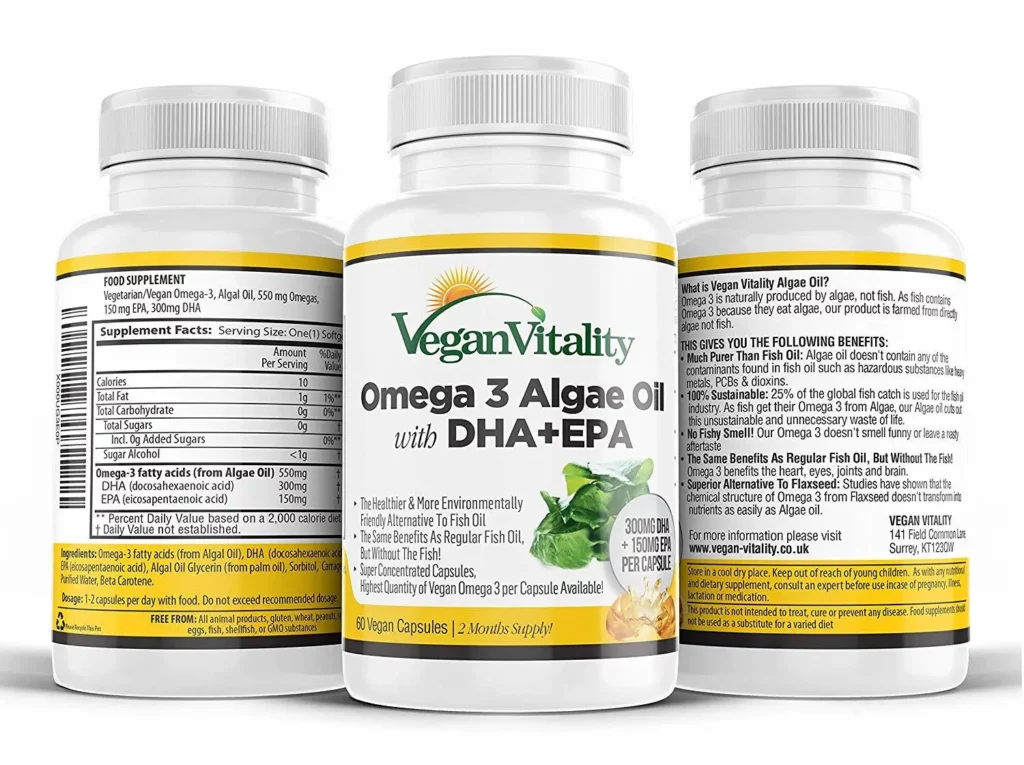Omega-3 fatty acids are essential polyunsaturated fats that play a crucial role in maintaining good health. Among the various types of omega-3 fatty acids, the most important ones are alpha-linolenic acid (ALA), eicosapentaenoic acid (EPA), and docosahexaenoic acid (DHA). While EPA and DHA are primarily found in fish and seafood, ALA is commonly sourced from plant-based foods. This comprehensive guide will focus on the benefits of vegan omega-3, particularly ALA, and how it can positively impact overall well-being.
Heart Health and Cardiovascular Benefits
A substantial body of research suggests that consuming omega-3 fatty acids, including ALA, can have a positive impact on heart health. Omega-3s are known to reduce triglyceride levels, which are fats in the blood that can contribute to cardiovascular diseases. Additionally, they can help lower blood pressure and reduce inflammation, which is associated with a lower risk of heart disease. ALA-rich sources, such as flaxseeds, chia seeds, and walnuts, have shown promising effects in improving heart health, making them essential components of a heart-healthy diet.
Brain Function and Cognitive Support
The brain is predominantly composed of fats, and omega-3s play a crucial role in maintaining its structure and function. DHA, one of the key components of omega-3s, is particularly important for brain development and cognitive function. While DHA is found mainly in fish, the body can convert ALA into small amounts of DHA, providing a plant-based alternative for vegans. Studies have shown that adequate omega-3 intake is linked to improved memory, cognitive performance, and a reduced risk of neurodegenerative diseases like Alzheimer’s and dementia.
Mental Health and Emotional Well-being
There is growing evidence to suggest that omega-3 fatty acids play a significant role in supporting mental health and emotional well-being. Research has linked low omega-3 intake to an increased risk of depression, anxiety, and other mood disorders. Vegans can obtain ample ALA from flaxseed oil, chia seeds, and hemp seeds, which may contribute to better mental health and emotional stability.
Anti-Inflammatory Properties
Inflammation is a natural response of the immune system, but chronic inflammation can lead to various health issues. Omega-3s, particularly ALA, have anti-inflammatory properties that can help mitigate this risk. By incorporating vegan sources of omega-3 into the diet, individuals may experience reduced inflammation and associated health benefits, such as improved joint health and a lower risk of chronic inflammatory conditions like arthritis.
Skin Health and Radiance
Omega-3s are vital for maintaining healthy skin. They help support the skin’s moisture barrier, keeping it hydrated and reducing dryness. Furthermore, omega-3s may aid in managing conditions such as eczema and psoriasis due to their anti-inflammatory properties. Flaxseed oil, in particular, is a great vegan source of ALA that can promote radiant and youthful-looking skin.
Eye Health and Vision
DHA, a type of omega-3 fatty acid, is a significant component of the retina in the eye. It is essential for maintaining optimal vision and preventing age-related macular degeneration. Since DHA is not as prevalent in vegan diets, it is crucial for vegans to ensure they consume enough ALA-rich foods to support the conversion of ALA to DHA, albeit in small amounts.
Pregnancy and Infant Development
During pregnancy and infancy, omega-3 fatty acids are vital for the proper development of the baby’s brain and eyes. Pregnant and breastfeeding women who follow a vegan diet should pay particular attention to their omega-3 intake to support their child’s optimal growth and development. Including plant-based sources of ALA, such as flaxseeds and walnuts, can help ensure an adequate supply of omega-3s.
Conclusion
Omega-3 fatty acids are essential for maintaining overall health and well-being. While some types of omega-3s are predominantly found in fish and seafood, vegans can obtain adequate amounts of omega-3s, primarily ALA, from plant-based sources. Incorporating ALA-rich foods like flaxseeds, chia seeds, and walnuts into a vegan diet can provide numerous benefits, including improved heart health, cognitive function, mental well-being, reduced inflammation, healthy skin, and support for eye health. It is essential for vegans to pay attention to their omega-3 intake and consider supplementation if necessary, to ensure optimal health and vitality.
